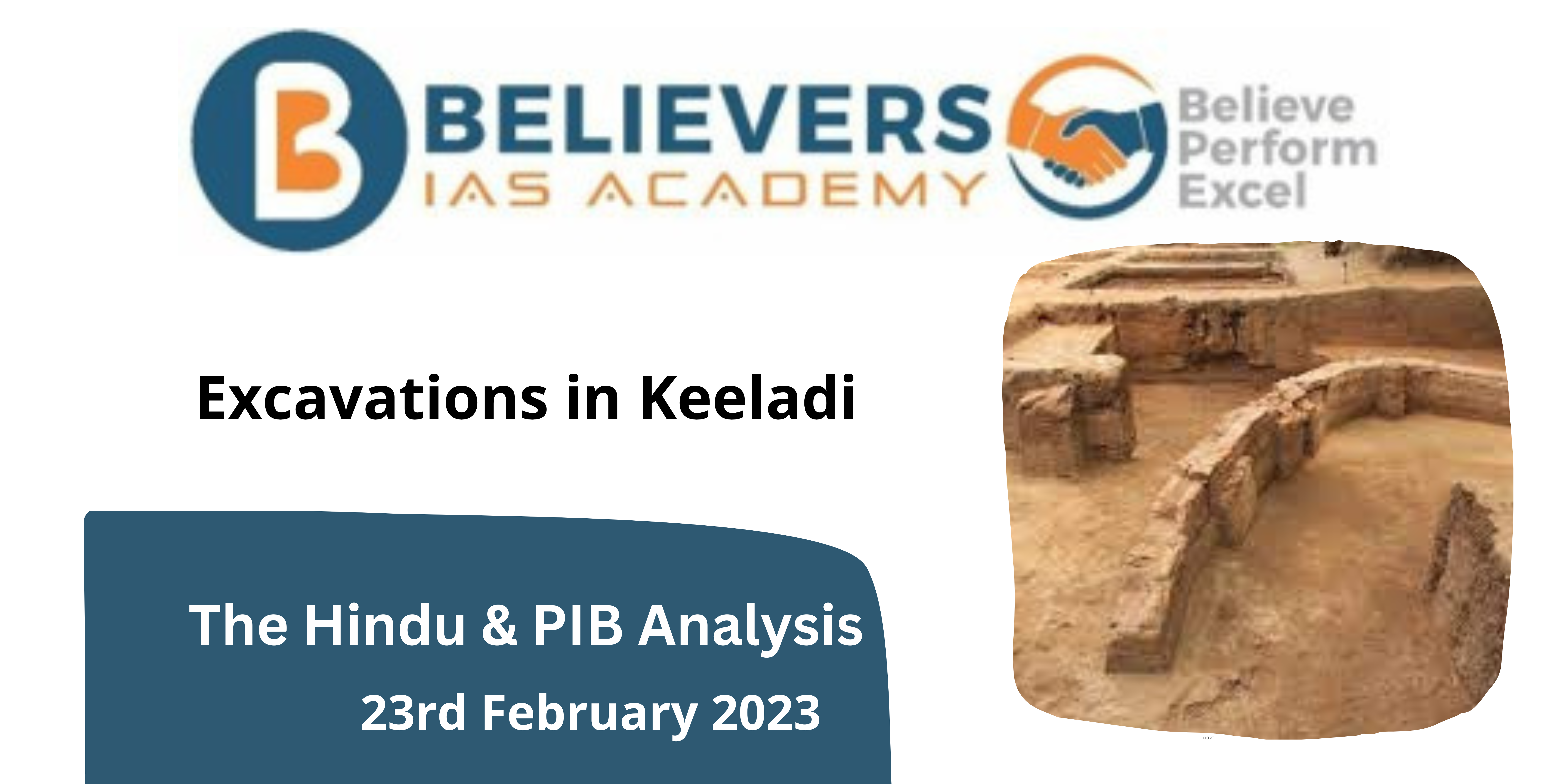Excavations in Keeladi
#GS 01 Ancient History
For Prelims
Sangam Age
- The Sangam age is a historical period of ancient Tamil Nadu which was believed to span from the third century BCE to the third century CE.
- The name is derived from the confluence or Sangam of renowned poets of Madurai from that time who came together under the patronage of the Pandya kings.
- The current understanding of history suggests that there were three Sangams (Academy of Tamil poets) held in the ancient South India popularly called Muchchangam.
- However, the findings in Keeladi (Keezhadi) suggest that the Urbanisation of Vaigai plains happened in Tamil Nadu during the 6th century BC.
- This pushes the origins of Sangam Age back by at least 300 years.
Keeladi Excavations
- Keezhadi (also known as Keeladi) is a tiny hamlet in the Sivaganga district in south Tamil Nadu.
- Keeladi excavation site is being excavated by the Archaeological Survey of India and the Tamil Nadu State Department of Archaeology.
- In 2019, TNSDA was able to date the unearthed artefacts from Keeladi to a period between sixth century BCE and first century BCE.
- The site is referred as part of the Vaigai Valley Civilisation amongst academics.
- Moreover, it has recieved comparisons with the Indus Valley Civilisation even though there exists a cultural gap of 1,000 years between the two places.
- TNSDA have confirmed that Keeladi has all the characteristics of an urban civilisation, with brick structures, luxury items and proof of internal and external trade.
- Over 18,000 artefacts have been unearthed from the site during the eight rounds of excavations.
- This includes over 120 potsherds containing Tamil Brahmi inscriptions that have been found.




